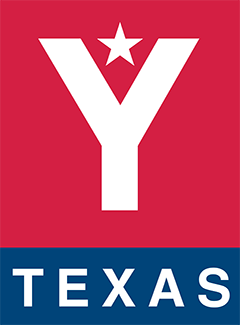By Sebastian Herrara & Shonda Novak – Statesman
April 8, 2019
Zoho, an international software company based in Pleasanton, Calif., is moving its headquarters to Austin and opening an office on a 375-acre campus southeast of the city that will house hundreds of employees, company executives told the American-Statesman.
Executives said up to 500 employees will eventually fill a 100,000-square-foot building the company is planning to open in 2021. Construction could begin next year, Zoho said, depending on how fast the company receives approval for its site from the city of Austin. The software company plans to initially house more than 100 employees at the headquarters; most of them will transfer from Zoho’s Austin office on Burleson Road. Hiring will increase throughout the next several years, and additional facilities will be constructed as needed.
Positions at the headquarters will primarily be customer service and technology assistant roles — the kind the company has had in Austin since establishing a presence here about a decade ago — but will grow to include more technical roles as Zoho expands. The company declined to share what the salary range for those jobs will be.
The Austin campus will be near Kellam Road and Texas 71, about 5 miles east of Austin-Bergstrom International Airport. Roughly 60 employees work at Zoho’s current Austin office, Zoho executive Raju Vegesna said, but by the time the company opens its new site, the number will be closer to 100. All of the current Austin workers are expected to transfer to the new headquarters.
Founded in India in 1996 by CEO Sridhar Vembu, Zoho markets itself as a “unique and powerful suite of software to run your entire business,” offering email, analytics, accounting, IT management and other services that businesses can use in their daily operation.
Zoho employs more than 7,000 workers in 12 offices throughout the world, including in India, China, Japan, Mexico and other countries. The company says it has more than 300,000 corporate customers, and that its services reach more than 45 million users. Some of its most notable customers include Amazon, Facebook, Netflix and the city of Philadelphia, according to company executives.
As Zoho prepared for more growth, the software firm’s leadership began looking for a central location with lower costs for business operations and living, but one that had an attractive talent pool of workers and high quality of life for employees, Vegesna said. Austin fit the bill, he said.
“One of the things we value is quality of life for employees,” Vegesna said. “We had to make a decision: We need a lot more people. Do we add jobs in California or elsewhere? We picked Austin and started hiring.”
Local economic development leaders say Zoho’s relocation is good news for Austin, with ripple effects for the economy and Austin’s reputation as a tech hub.
With Zoho’s strong ties to India and other international sites, its move here could spur further foreign investment in Central Texas, said Austin economist Angelos Angelou.
“It is very significant,” Angelou said. “It could lead to the attraction of additional companies because now in the eyes of other Indian companies, Austin will be on their radar screen.”
Moving to Austin also gives Zoho an opportunity to influence both the city’s international business presence and the identity of Southeast Austin, Angelou said. In recent years, as California has become an increasingly costly place to live and operate a business, Silicon Valley titans such as Google, Facebook and Apple have established major hubs here.
In selecting Austin for the development, Vegesna said, the company hoped to ease issues here that it has seen in California, including a swell of tech companies downtown increasing traffic for employees and adding to housing costs within the core of those cities.
In addition, the Austin campus will include a yearlong training program the company has established at its India site. The program targets high school students interested in forgoing college education for a faster track into the professional world. Hundreds of students now participate in the training each year, Vegesna said, with the company providing free engineering lessons. Fifteen percent of the company’s workforce now comprises program graduates, Zoho said.
“Zoho is already showing its investment in our community by planning to partner with Del Valle Independent School District on workforce training initiatives to help students gain the skills they need to get a job,” Charisse Bodisch, head of economic development at the Greater Austin Chamber of Commerce, said in a statement.
While the business to business market is as crowded as ever, Zoho said it has been effective because of the range of products it offers, as well as what it says are competitive prices. Zoho is looking at how it can maintain long-term success, Vegesna said, and it sees moving its headquarters to Austin as a foundation for its global goals.








